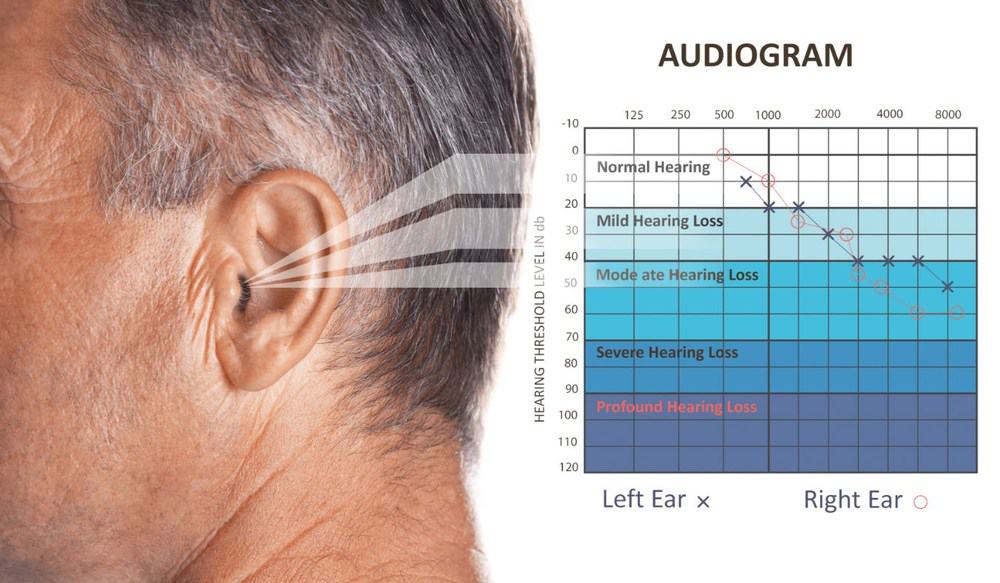The Role of Technology in Managing Hearing Loss
Technology has changed the way people manage hearing loss, offering

By: admin | October 30, 2024
Ever catch yourself asking friends to repeat themselves more often, or feeling worn out after social gatherings? Your ears might be trying to tell you something. Hearing loss can sneak up on us, whispering rather than shouting its presence. A hearing test isn’t just another doctor’s appointment – it’s a chance to tune into a part of your health that affects nearly every aspect of daily life. Maybe you’ve started avoiding phone calls or find yourself lip-reading more than you realized. Or perhaps you’re blissfully unaware that you’re missing the subtle notes in your favorite songs.
A hearing check can shed light on these hidden changes, giving you insights you didn’t know you needed. It’s not about getting older; it’s about staying connected to the world around you. From the buzz of a busy café to the quiet confessions of a loved one, your hearing shapes your experiences. Regular hearing tests can keep you in the loop, ensuring you don’t miss a beat – or a punchline – in life’s ongoing conversation.
Knowing when to schedule a hearing check is crucial to maintaining long-term hearing health. One of the most noticeable signs is difficulty understanding conversations, especially in noisy environments or when multiple people are speaking at once. If you find yourself asking others to repeat themselves often or if conversations seem muffled, these can be early indicators that a hearing check is needed. Similarly, if you notice that you need to turn up the volume on the TV or radio more than usual, it could be a subtle sign of hearing loss. These everyday challenges might start small but tend to worsen over time if left unaddressed.
Other signs can be more persistent or sudden. Ringing or buzzing sounds in your ears, known as tinnitus, can sometimes signal an underlying hearing issue. You might also experience a sensation of fullness in your ears or struggle with hearing high-pitched sounds. If you notice any changes in how you hear – whether gradual or sudden – it’s worth scheduling a hearing check. Early detection can prevent further deterioration and help you find the right solutions for better hearing.
Regular assessments can spot subtle changes in your hearing ability that might otherwise go unnoticed. When caught early, these minor changes can be quickly addressed by an audiologist, preventing further deterioration and helping maintain your auditory health.
Also, routine assessments offer an opportunity to update and adjust your existing hearing aids, if you use them. Audiologists can tweak them based on the current status of your auditory capabilities, ensuring optimal performance.
Hearing health often takes a backseat to more visible health concerns. However, your auditory health is deeply linked with your overall wellbeing. Hearing loss can lead to feelings of isolation and may even contribute to cognitive decline. This is because our brains work hard to process sounds, and when the auditory system isn’t functioning at its best, it can put extra strain on our cognitive abilities.
Regular check-ups with a professional can help manage your hearing health effectively by providing timely interventions if any changes are detected in your auditory capabilities. This way, you’re not only ensuring that you continue to enjoy the richness of sounds around you but also taking care of your overall wellbeing.
By identifying any changes in your hearing ability at the earliest stage, you can prevent further deterioration and maintain optimal auditory health.
Think of it like a leaky faucet. If you notice the problem when it’s just a slow drip, you can fix it easily with minor adjustments. But if left unchecked, that small leak could turn into a big problem, causing water damage and requiring more extensive repairs. Similarly, early detection of hearing changes allows for timely interventions by likes, preventing a small issue from escalating into significant hearing loss.
Frequent hearing tests aren’t typically necessary for most people, especially if there are no noticeable changes in hearing abilities. Many individuals can go years without needing an updated hearing evaluation, as hearing changes tend to occur gradually rather than overnight. If you’re not experiencing sudden difficulties with hearing, scheduling routine tests might not be essential.
However, it’s important to understand why hearing tests are recommended only as needed. Hearing tends to shift over time, but these changes are often subtle. That’s why it’s more practical to monitor your hearing health based on noticeable symptoms, rather than scheduling tests too often. If you notice any sudden hearing loss, persistent ringing in the ears or difficulty following conversations, that’s the right time to schedule a hearing evaluation.
As we age, our bodies undergo various changes and our hearing is no exception. Age can have a significant impact on your hearing capabilities. It’s not uncommon for individuals to experience some degree of hearing loss as they get older, a condition known as presbycusis.
Presbycusis is gradual in nature, making it harder to notice until it becomes more pronounced. This slow progression underscores the importance of regular hearing tests as you age. The sooner you detect changes in your auditory abilities, the sooner you can take steps towards managing them effectively.
Generally, experts suggest that adults should get their hearing tested every three years once they reach the age of 50. However, if you notice any changes in your ability to hear or if you often find yourself asking people to repeat themselves, it might be beneficial to schedule a test sooner rather than later. Early detection is key in maintaining optimal auditory health and ensuring that you continue to enjoy life’s sounds to the fullest.
Moving on from age factors, let’s consider how your lifestyle and job role can impact your hearing health. If you’re working in an environment with high noise levels, like construction sites or music venues, you’re at a higher risk of developing noise-induced hearing loss. Therefore, it’s vital to use protective gear like earplugs or earmuffs to protect your ears from excessive noise.
Lifestyle choices can also play a significant role in preserving your hearing health. For instance, maintaining a healthy diet and regular exercise can improve blood circulation, which is beneficial for your ears. Avoiding excessive exposure to loud music through headphones is another simple yet effective way to protect your auditory capabilities.
Lastly, if your job involves frequent flying or diving that exposes you to rapid changes in air pressure, it could potentially harm your ears. Hence, taking necessary precautions like equalizing ear pressure during ascents and descents is advisable. Understanding the influence of lifestyle and job roles on hearing health allows you to take proactive steps towards maintaining optimal auditory wellbeing.
When you go for a hearing test, the process is designed to be thorough and comfortable, giving you a clear picture of your hearing health. First, the audiologist will start with a conversation about your medical history, lifestyle and any hearing challenges you may have noticed. This step helps them understand factors that could be contributing to your hearing loss, like exposure to loud noises, medications or family history. Afterward, they’ll examine your ears, typically using an otoscope, to check for any physical blockages or issues, like earwax buildup or infections, that might affect your hearing.
Once the initial consultation and ear examination are done, the specialist will guide you through a series of tests to assess the type and extent of your hearing loss. These tests are painless and straightforward, and each one serves a different purpose to give a complete view of your auditory abilities.
Here are four common types of hearing tests you may experience:
After your hearing test, the audiologist will review and interpret your results. They’ll discuss these findings with you, explaining what they mean in a clear and easy-to-understand manner. This conversation is an important part of the post-test process because it helps you understand your current hearing health status.
If any changes or issues are detected during your test, the next step is to consider potential solutions. The audiologist will provide recommendations based on your unique situation and needs. These could include strategies for protecting your hearing, using assistive listening devices or considering the use of hearing aids if necessary. The goal here is to ensure that you can continue to enjoy life’s sounds to the fullest while also maintaining optimal auditory health.
Understanding the importance of regular hearing tests and taking action to schedule them is an essential step towards maintaining optimal auditory health. By identifying any changes in your hearing ability early, you can prevent further deterioration and continue to enjoy the richness of sounds around you.
At Sommerville Audiology & Hearing Aid Center, our audiologists are here to guide and support you on your path towards better hearing health. You can contact us at our Saint Clair Shores, MI location by calling: (586) 298-3788.
Tags: faqs, speech tests, tympanometry

Technology has changed the way people manage hearing loss, offering
By: admin | October 20, 2025

When you schedule a hearing test with an audiologist, you might assume
By: admin | July 29, 2025

Your hearing affects everything from following conversations at family
By: admin | June 20, 2025
